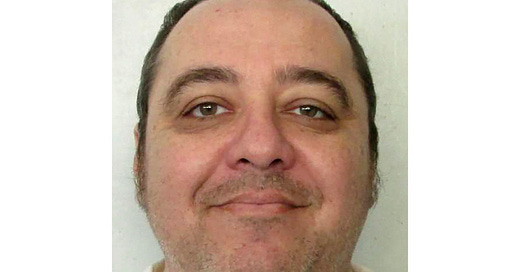Supreme Court Refuses to Halt First Nitrogen Execution
Death-Row Inmate Scheduled to Be Put to Death In Alabama Tomorrow Evening
By Gary Gately
The U.S. Supreme Court on Wednesday rejected an Alabama death-row inmate’s request to halt his execution through an untested method that would deprive him of oxygen, resulting in his suffocation.
Catholic and other religious leaders from Montgomery, Alabama, to Rome have joined the United Nations in calling on Republican Governor Kay Ivey not to execute Kenneth Eugene Smith by nitrogen hypoxia.
The high court gave no explanation for its decision and noted no dissents. Smith has also asked a federal court to stop the execution, but that court has not ruled on his request.
Lawyers for Smith, who was convicted in 1989 of killing a pastor’s wife in a murder-for-hire, said the method of execution would amount to cruel and unusual punishment, violating the Eighth Amendment.
Smith’s execution would mark only the second time in the nation’s history that a state attempted to execute an inmate a second time after initially failing, his lawyers said.
They noted that Alabama’s 2022 attempt to execute him failed when officials could not raise a vein and aborted the attempt as the midnight deadline approached.
The state opposed Smith’s appeal, pointing out this week in a filing with the Supreme Court that it would use a different method this time, which it called “perhaps the most humane method of execution ever devised.”
Smith faces the death penalty for the 1988 stabbing murder of Elizabeth Sennett in exchange for $1,000 in a murder-for-hire plot devised by her preacher husband, Charles Sennett Sr.

Lawyers for Alabama wrote in a Supreme Court filing that the nitrogen hypoxia method of execution is “much better than Smith gave Elizabeth Sennett nearly thirty-six years ago.”
But the United Nations Office of the High Commissioner for Human Rights joined other critics in calling for Alabama to abandon plans to execute Smith by nitrogen hypoxia. Only three states authorize the method, which has never been used.
The UN human rights organization expressed concern that the execution method may subject Smith to to “grave suffering” and “cruel, inhuman or degrading treatment” or even torture.
Even some veterinarians in the U.S. Europe have ruled out nitrogen as a euthanasia method for most animals other than pigs because they view it as inhumane and unethical.
If Alabama goes ahead with the execution, the 51-year-old Smith will be fitted with a mask in which oxygen is replaced with nitrogen, depriving his body of oxygen and suffocating him.
Jurors who convicted Smith voted 11-1 to sentence him to life without parole, but a judge overruled them and gave him a death sentence. Alabama has since amended its sentencing laws so the jury, not the judge, makes the final decision on sentencing in a capital trial.
The Catholic Mobilizing Network, which lobbies against the death penalty, has urged Catholics to contact Governor Ivey and call on her to stop the execution of Smith.
The group cites the Catechism of the Church, which Pope Francis revised in 2018 to state that the death penalty is “inadmissible because it is an attack on the inviolability and dignity of the person.” The Catholic stance against the death penalty applies “even after the commission of very serious crimes,” the Catechism states.
A Gallup poll in November showed 53% of Americans support the death penalty, the lowest since 1972.
And a growing number of U.S. states – now 23 – have banned the death penalty.
In Montgomery, Alabama’s capital, more than 100 religious leaders delivered petitions to Ivey urging her to halt Smith’s execution.
Rev. Jeff Hood, Smith’s spiritual advisor, told a group of death penalty opponents: “Unfortunately, I am not convinced this is going to be the final execution in our country, Perhaps it won’t even be the final execution in this state. But I do know that if we all stand together, eventually, there will be a last execution. There will be a final execution.”
Earlier this week, Mario Marazziti, who leads the Vatican-affiliated, Rome-based Sant’Egidio Community, which now operates in more than 70 countries, told reporters: “In many respects, Alabama seems to have the awful ambition of setting a new, downward standard of humanity in the already questionable and barbaric world of capital executions.
“We are asking that this execution be stopped because the world cannot afford to regress to the stage of killing in a more barbaric way,” Marazziti added.
A petition asking Ivey to grant clemency to Smith has been signed by more than 15,000 people, the Sant’Egidio Community said.
Marazziti called the execution method nitrogen hypoxia “barbarous” and “uncivilized.”
By 2022, Amnesty International reports, 112 countries had banned the death penalty.
But the human rights organization says at least 883 executions occurred in 2022 in 20 countries — a 53% increase from the 579 executions in 18 countries in 2021, the highest total since 2017. The most executions occurred in China, Iran and Saudi Arabia, followed by Egypt and the U.S. (18), Amnesty said.
Worth reading: Planned Alabama execution latest example of barbarism in America (Michael Sean Winters, National Catholic Reporter)



